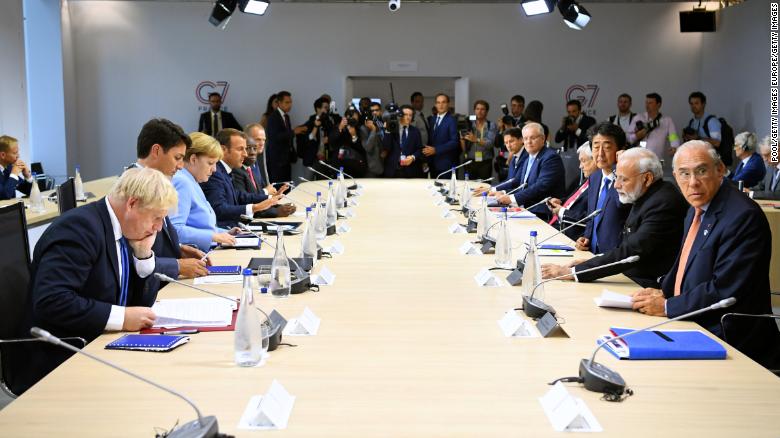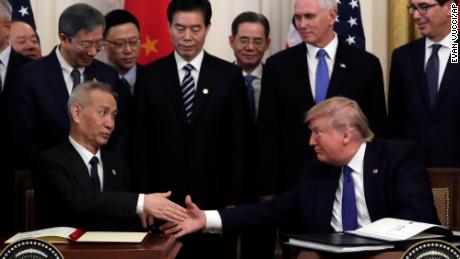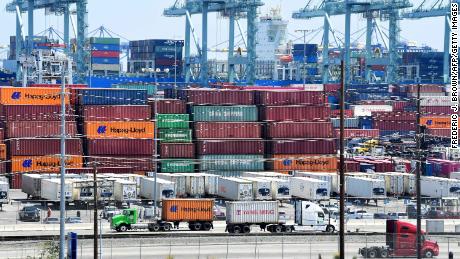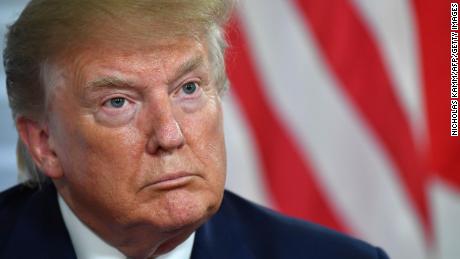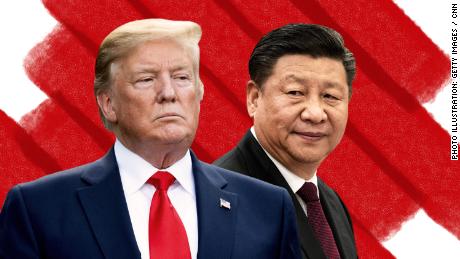New York (CNN Busniess)Businesses and investors hate uncertainty. You've heard that before. But the Trump administration's chaotic approach to trade talks with China is more than just your garden-variety uncertainty. It's uncertainty squared. Or even cubed.
Trump "hereby ordered" companies to look for suppliers outside of China in one of his many tweets Friday. He even went so far as to call Chinese President Xi Jinping an "enemy" ŌĆö in a tweet where Trump also labeled his own hand-picked Federal Reserve chairman Jerome Powell an "enemy" for not cutting interest rates faster.
But Trump appeared to take a more conciliatory tone regarding trade discussions (if not the Fed) over the weekend. On Monday, he tweeted that Xi is a "great leader & representing a great country. Talks are continuing!"
Stocks rebounded a bit Monday on this news after plunging Friday.
No way to plan for the future
Faced with this bombardment of erratic missives from Trump, it's no wonder that American companies don't know where they stand. The ground beneath their feet is constantly shifting. Retailers in particular are anxious.
"It's impossible for businesses to plan for the future in this type of environment," said David French, senior vice president for government relations with The National Retail Federation, in a statement Friday.
"The administration's approach clearly isn't working, and the answer isn't more taxes on American businesses and consumers. Where does this end?" French added.
Major American tech companies like Apple (AAPL) would also struggle if the trade war deepens. For one thing, it will be difficult to move away from China as a source of production anytime soon.
Wedbush analyst Dan Ives said in a report Friday it would take at least three years for Apple to move just 20% of its iPhone production away from the Foxconn factories it uses in China. And Ives estimates it would take more than five years for Apple to move half of iPhone production out of China.
The tariffs hurt in other ways as well. China's growing middle class is an increasingly tantalizing consumer market for American companies. So anything that makes iPhones and other gadgets more expensive in China is also a big problem.
Retailers and tech companies may be on the front lines in China. But there are even bigger concerns for the US economy.
"The larger risk here is of a leader who is making dangerous, arbitrary decisions with little idea of the potential consequences," said Mike O'Rourke, chief market strategist with JonesTrading, in a report Sunday.
"US business leaders are now publicly rejecting President Trump's approach. For the same reasons China does not trust President Trump to make a deal, businesses and markets will quickly lose faith," O'Rourke added.
Corporate confidence is fading fast
Businesses are already afraid to make significant investments because of tariff concerns.
And investors who are too busy focusing on the latest minute-by-minute headlines and tweets may be missing that fact.
"Resolution to the trade war is clearly far off, and further erosion of corporate confidence seems unavoidable," said Lori Calvasina, head of US equity strategy with RBC Capital Markets, in a report Monday.
Calvasina is concerned that earnings estimates for the second half of this year and all of 2020 are now too high as a result of the latest trade tension.
Of course, all of this could change in a heartbeat. Trump may look at the recent market volatility as something that undermines his re-election chances next year if stocks continue to plunge and the broader economy starts to sink along with it.
"The US president has proven capable of pivoting quickly, so it remains possible that a trade truce can be reestablished at short notice," said UBS Global Wealth Management chief investment officer Mark Haefele in a report Monday.
Haefele also thinks the Fed will come to the rescue and will lower interest rates enough times to stave off a recession in 2020.
But the damage may already be done on Wall Street. That's why Haefele added that he's no longer bullish on stocks in the United States ŌĆö or other markets for that matter.
"The US-China trade dispute has escalated in recent days, raising the risk of a cycle of retaliation that undermines global growth," Haefele said, adding that "we will be alert for signs that the latest tranche of tariffs could undermine consumer spending."
"We believe the new US tariffs will be more economically damaging than prior rounds," he said.
